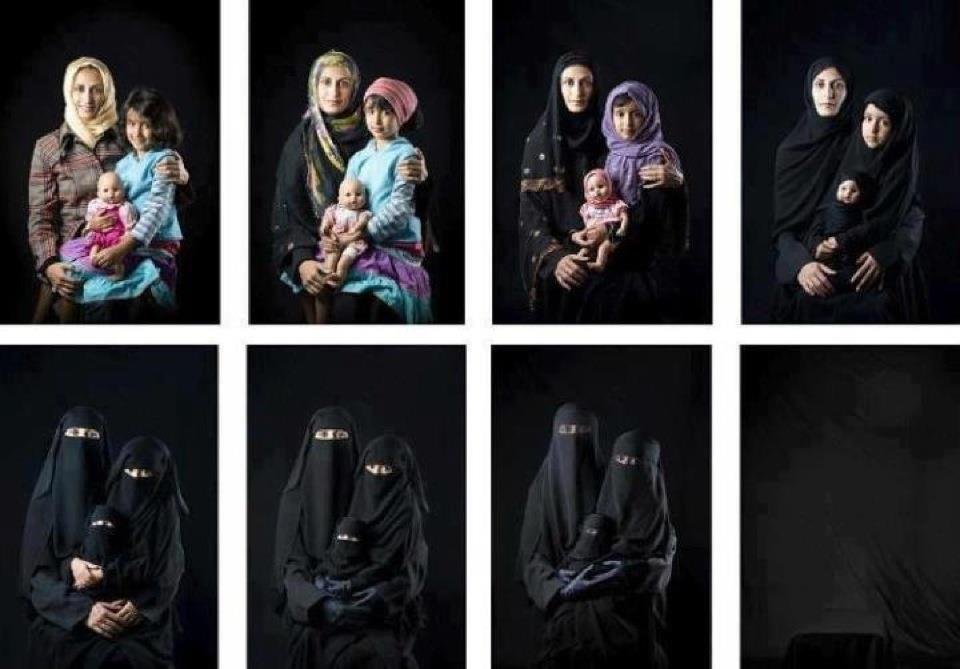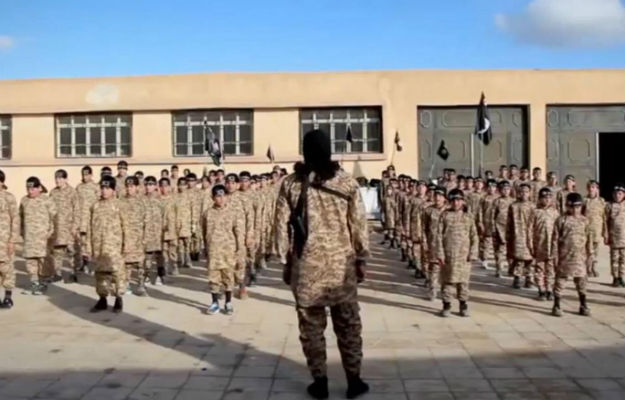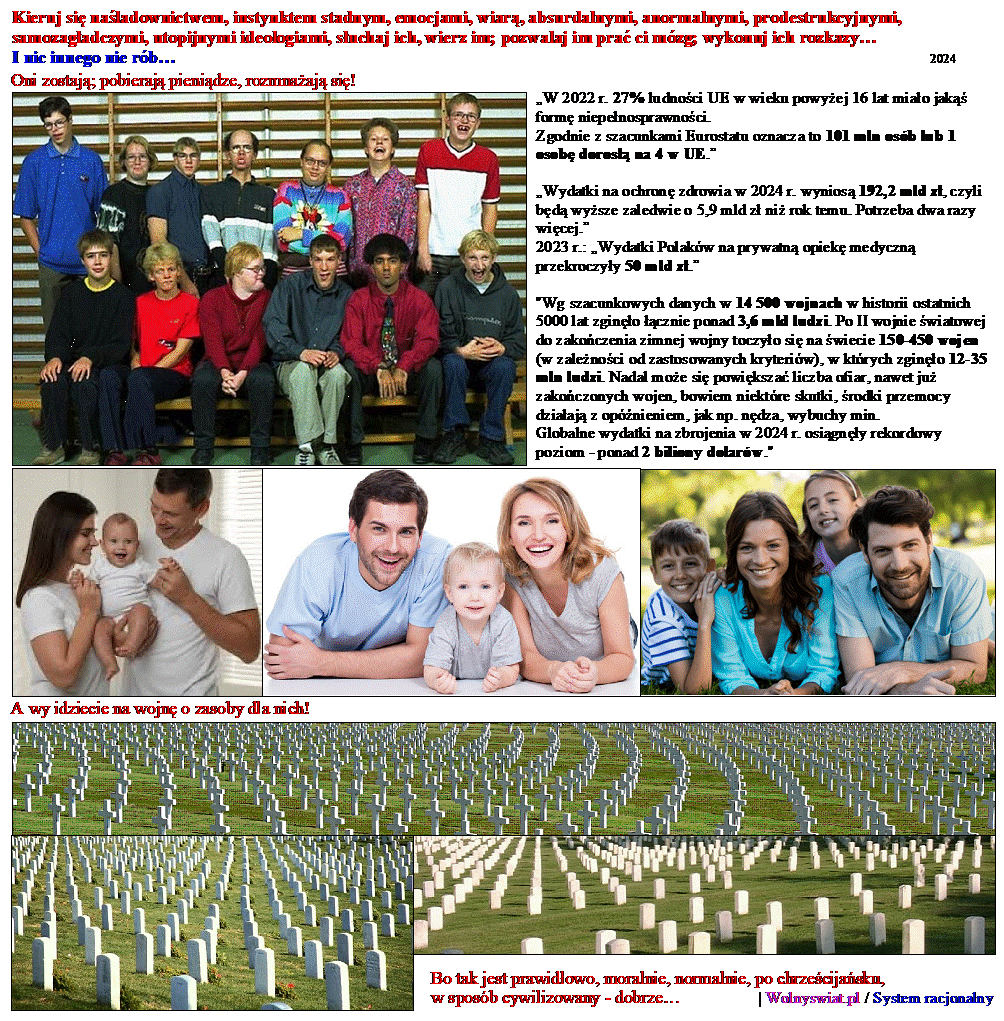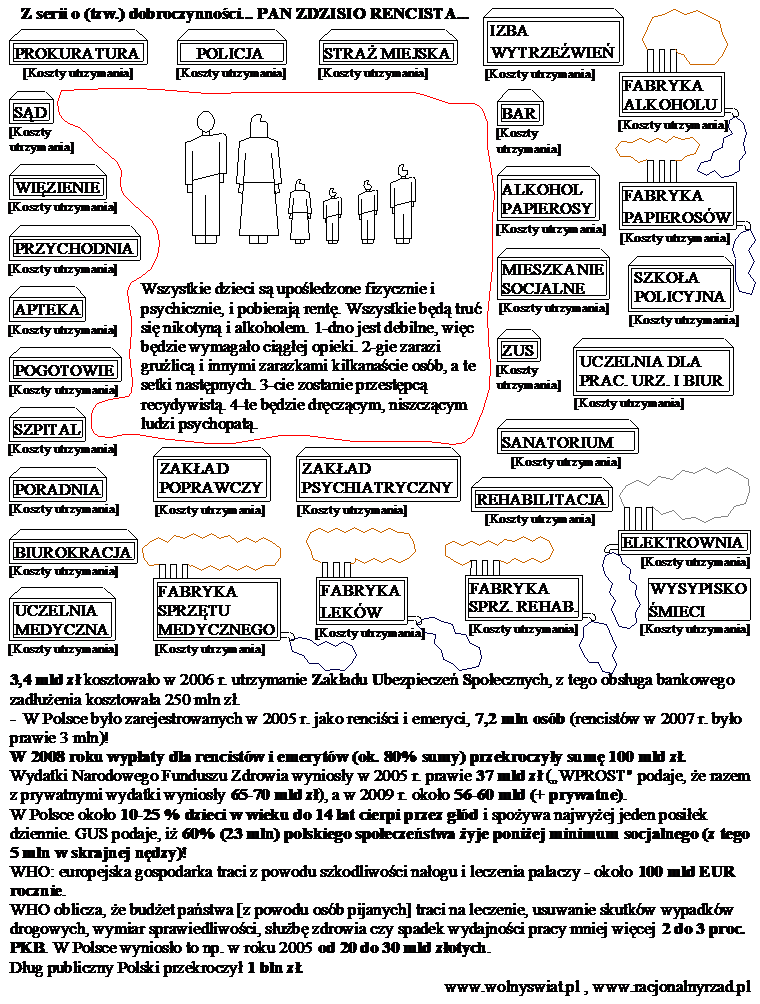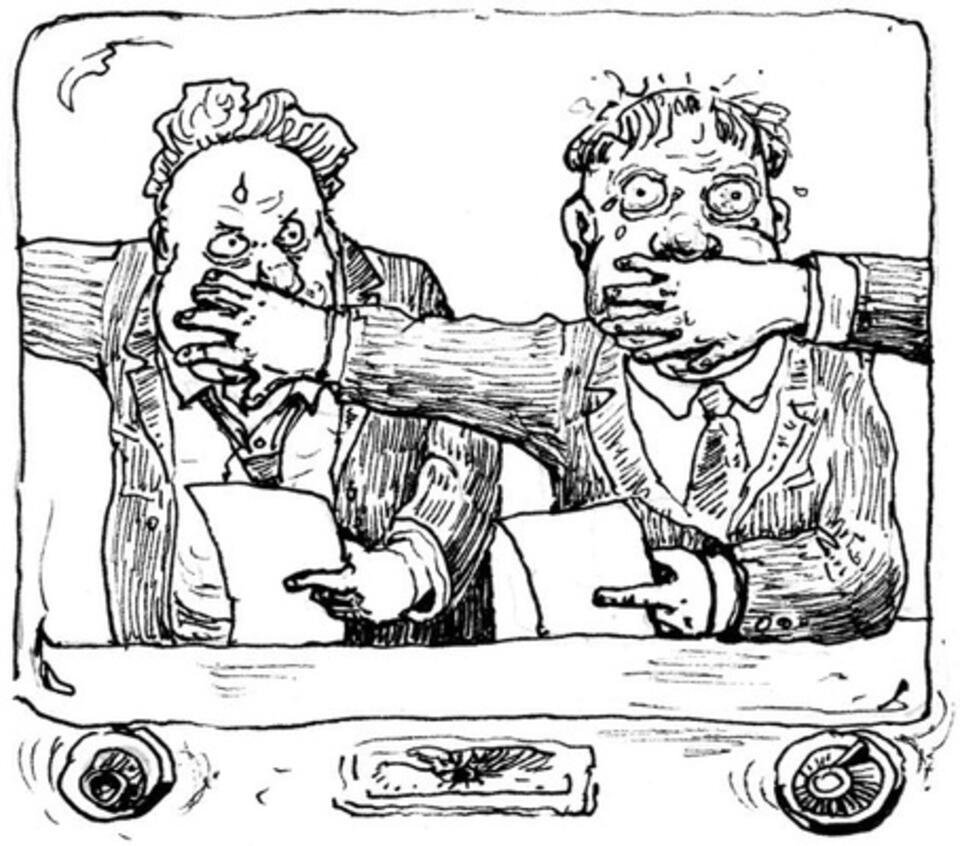http://apologetyka.com/swiatopoglad/isl ... azja/koranTHE BOOK OF ISLAMRobert Morey "ISLAMIC INVASION. A confrontation of the world's most spreading religion.
Western comments:
The Scottish researcher Thomas Carlyle once said: A laborious read like never before, tiring, mixed chaff, crude, unadorned.
German scholar Salomon Reinach stated: From a literary point of view, the Quran cannot offer much. Declamations, repetitions, infantilism, lack of logic and coherence await the unprepared reader on every page. It is truly humiliating to the human intellect to realize that this poor literature has become the subject of endless commentary and that millions of people waste their time learning it.
Historian Edward Gibbon described the Qur'an: A rickety rhapsody of fables, injunctions, declamations, sometimes wallowing in dust, sometimes lost in the clouds.
The McClintock & Strong Encyclopedia concludes: The content of the Qur'an is extremely inconsistent and sententious; the book apparently lacks any logical order, either in part or as a whole. This is consistent with the perfunctory and haphazard manner in which it is claimed to have been transmitted.
The standard source of knowledge on Islam, the Little Encyclopedia of Islam, emphasizes the "disconnected and irregular character" of the Qur'anic text: To find similar literary monuments one must go back to pre-Islamic Arabic literature, where there are similar examples of ecstatic declamations and confused poetic material.
Unforeseen death
As we mentioned earlier, Muhammad did not foresee his own death, even though he claimed to be a prophet of God. Hence the lack of any preparations to collect his revelations so that they could be placed in one document.
No original manuscripts
Irrefutable historical accounts inform us that whenever Muhammad entered into his trances or attacks and then told others about what he saw during these episodes, he never wrote them down in his own handwriting.
Bones, leaves and stones
The task of writing down what Muhammad said fell to his followers. These notes were made on various objects that were at hand whenever Muhammad fell into his unpredictable trances.
The Little Encyclopedia of Islam reports:
The Quran was collected from random surfaces on which it was written: "papyrus fragments, flat stones, palm fronds, animal shoulders and ribs, pieces of leather, planks and human hearts."
Mandudi - a world-famous Muslim scholar admits that the Quran was originally written on "date palm leaves, tree bark, bones, etc."
The unusual material on which the Quran was written is confirmed by all respectable scientific works, encyclopedias and studies devoted to Islam.
When there was nothing at hand on which to record Muhammad's revelations, human memory became the only possible means of recording their often incomprehensible content.
As Mandudi states, the task that fell to Muhammad's followers after his unexpected departure was to collect Muhammad's scattered speeches, some of which were written down on biodegradable objects, and others that were not written down but entrusted only to human memory.
Of course, this task encountered enormous difficulties. Some of the bark fell apart and some of the stones were lost. What's worse, as Ali Dashti notes, it happened that domestic animals ate palm leaves and mats on which surahs were written.
Some of those who were the only ones who remembered certain surahs died in battles before they could write down their contents.
The process of collecting Quranic material took many years. It took place in an atmosphere of misunderstanding, as the memory of some did not precisely confirm the memory of others.
This is an unavoidable fact of human nature. Whenever more than one person is present and hears the same speech, confusion arises as to what exactly the speaker meant.
As we will see later, this problem was solved by the use of force and coercion to accept one version of what Muhammad was said to have said.
Complete chaos
This state of affairs is causing enormous problems and confusion. One can find clear instructions at the beginning of the Qur'an which later in the Qur'an are "cancelled", that is, contradicted by something the Qur'an teaches in subsequent surahs.
Since everything Allah does is perfect, the Quran must be linguistically perfect. These claims are found in Sura 12:2; 13: 37: 41: 41, 44.
Perfect Arabic
Muslims maintain that the text of the Qur'an is written in perfect Arabic in every respect, as it was written by Allah in heaven.
The Little Encyclopedia of Islam states:
For Muslims, the absolute perfection of the language of the Qur'an is an unquestionable dogma.
Table in Heaven
Muslims believe that Allah wrote the Quran in heaven on a table-sized stone tablet before it was given to Muhammad.
Full text compatibility
Additionally, Muslims maintain that since the Quran is perfect, there are no different versions of the same texts, no lost verses, or inconsistent manuscripts.
Found originals
Many Muslims tell us with complete confidence that the "original manuscript" of the Quran that was collected by Muhammad himself still exists, and that all Qurans are descended from this one manuscript.
Are these claims true? Do they agree with the facts? We must state categorically that these claims are false.
Imperfect Arabic
First of all, the Quran is not written in perfect Arabic. It contains many grammatical errors, for example in the following surahs: 2: 177; 3: 59; 4: 162; 5: 69; 7: 160; 13:28; 20: 66; 63:10; e.t.c.
Ali Dashti comments: The Qur'an contains incomplete sentences, understandable only with the help of commentaries; foreign words, unknown Arabic words and ordinary words used with a different meaning; adjectives and verbs conjugated in violation of the rules of gender and number; illogical and ungrammatical pronouns sometimes devoid of reference; judgments that deviate far from the subject in rhyming passages.
To sum up, the Quran contains over a hundred aberrations of the accepted principles and norms of the structure of the Arabic language.
Words of foreign origin
Not only that, there are passages in the Quran that are not in Arabic!
In his book Foreign Vocabulary in the Quran, Arthur Jeffrey documents the fact that there are over a hundred words of foreign (non-Arabic) origin in the Quran.
It contains Egyptian, Hebrew, Greek, Syriac, Hakidnian, Ethiopian and Persian words and phrases.
Orientalist Canon Sell notes:
The number of foreign words is significant. They have been borrowed from many languages. In Jalalu-Din as-Syuti's Mutawakkil, one hundred and seven words of foreign origin are mentioned and commented on.
In one case, Jeffery provides 90 pages of different wording of the text. For example, the second sura contains 140 contradictory and different interpretations of the text of the Qur'an.
All Western and Muslim scholars agree that the text of the Quran contains various interpretations.
Guillaume notes that initially the Qur'an contained "a considerable number of variations in the text, not always trivial."
It is worth noting that, although with great resistance and reluctance, Muslim scientific publications confirm the fact that there are indeed different versions of the text in the Quran.
Muslim smokescreen
The progress of research by Western scientists such as Arthur Jeffery and others is hampered by Muslims preventing access to early copies of the Qur'an based on texts dating from the period before the codification of the Qur'an by Caliph Uthman. Prof. Jeffery describes such a case:
An interesting contemporary example is the incident that occurred during the visit of the late Professor Berstrasser to Cairo. He was working in the archives, photographing early Kufic codices in the Egyptian Library, when I drew his attention to the collection in the Ahzar Library which contained some interesting writings. However, permission and access to the codex was denied because it is not consistent with legitimate principles for a Western scientist to have knowledge of such a text.
Jeffery Comments:
As for the various textual variations that have survived, it is in the interests of Orthodoxy to keep their existence strictly secret.
Some verses are missing
According to Professor Guillaume, as he states in his book Islam (p. 191), some of the original verses of the Quran have been lost.
For example, one of the suras originally consisted of 200 verses during the time of Aisha. When Uthman unified the text of the Quran, only 73 verses of this sura survived! All 127 missing verses were irretrievably lost.
Shiite Muslims maintain that Usman left 25 percent of the original material outside the Quran for political reasons.
That Usman left verses outside the Quran is widely accepted.
John Burton's book The Collected Quran published by the University of Cambridge documents how the verses were lost.
Changes in the Quran
One of the interesting ways in which some of the original verses of the Qur'an were lost was that a certain Abdullah Sarh, a disciple of Muhammad, gave his master the idea to repeat, add to, or subtract from the existing surahs. Muhammad often did as Sahr suggested.
Ali Dashti comments on what happened next:
Abdullah abandoned Islam because, according to him, if the revelations were to be from God, they could not be changed by the influence of a mere writer like himself. After his apostasy, he went to Mecca and joined the Quraish.
It is therefore not surprising that when Muhammad captured Mecca, one of the first people he killed was Abdullah, because he knew too much and spoke too much.
Canceled verses
In the process of nullification we mentioned earlier, some verses that are inconsistent with Muslim faith and practice are removed, such as the well-known "Satanic Verses" in which Muhammad condones the worship of the three daughter goddesses, the daughters of Allah.
Arabist E. Wherry comments:
Even though there are passages in the Quran that contradict each other, Muslim doctors resort to the doctrine of nullification, saying that God commands various things in the Quran and later revokes and annuls them for good reasons.
Wherry then documents a number of examples of the removal of verses from the Quran.
Canon Sell in his work The Historical Development of the Qur'an also comments on the practice of canceling problematic verses of the Qur'an:
It's amazing how embarrassing this practice is used in the system by both friendly and hostile people.
Added verses
Not only were some portions of the Quran lost, but entire verses and chapters were added to it.
For example, Ubai has a number of surahs in his manuscript of the Qur'an that were not included in Uthman's standard version of the Qur'an.
Hence we know that there were versions of the Qur'an in circulation in which some of Muhammad's revelations particularly did not suit Uthman, so he excluded them from the unified text of the Qur'an.
No original
Regarding the claim that there is an "original" manuscript of the Quran somewhere, as we mentioned earlier, there was not a single manuscript of the Quran.
As Arthur Jeffery writes:
Nothing is more certain than that when the prophet died, the material of revelation was not collected, arranged and ordered. The earliest layer of tradition available to us makes it clear that the Qur'an as a legacy for society was not yet ready. The prophet delivered his messages orally, and except later in his ministry, whether they were written down or not was often a matter of mere chance.
So what about the claims of those Muslims who still insist that Muhammad collected the complete Quran before he died? Jeffery replies: It doesn't take much to demonstrate the fact that this attempt has no basis.
Caesar Farah in his book on Islam states: At the time of Muhammad's death, there was not a single copy of the holy text.
Therefore, it is obvious that the bones, stones, palm leaves, tree bark and other materials on which the content of Muhammad's statements after his attacks or trances were written were collected only after his death.
It is also a fact that none of these things exist today. They have long since disappeared or been destroyed.
Early versions of the Quran were in conflict with each other. Some had more suras than others. They often differed in words.
Every time we ask Muslim apologists to point to the location of the "original" manuscript of the Quran, they say they don't know where it is but they are sure it exists because it cannot be otherwise. Such an argument is worse than no argument at all!
Usman's text
Turning to the work of Caliph Uthman, the following historical questions must be asked:
Why was he forced to standardize a standard text if a standard text already existed?
Why did he try to destroy all the "other" manuscripts if there were no conflicting manuscripts?
Why did he resort to threats of life to force people to accept his text if everyone had the same text?
Why did many reject his text and stick to their own texts?
The above questions reflect the complete state of confusion and contradiction that occurred during Uthman's time around the text of the Qur'an.
The fact that he ordered the destruction of all older copies of the Qur'an shows that he was afraid that they would show how imperfect his text was due to additions or omissions of what Muhammad actually said.
Fortunately, some of these older copies survived and were found by scholars such as Arthur Jeffery.
Western scholars have demonstrated beyond any doubt that the text of Uthman does not contain the entire Quran. Likewise, what it contains is not correct in all words.
==============
Muhammad's prints
Since Muslims claim that the Quran was transmitted from heaven and that Muhammad is not its human author, it is worth noting that, according to the Small Encyclopedia of Islam, the Arabic language of the Quran is the dialect of someone who was a member of the Quraish tribe living in the city of Mecca. Hence, Muhammad's prints are visible throughout the Quran.[35]
If the Quran were to be written in some blue, perfect Arabic, why does it openly show that it was spoken by someone who was from the Quraish tribe living in Mecca?
We must admit at this point that the Muslim argument for the heavenly origin of the Quran and its perfect Arabic cannot get off the ground.
The Quran in its dialect, vocabulary and content reflects the style of its author - Muhammad and not some heavenly Allah.
Conclusion
The actual history of the collection and creation of the text of the Qur'an clearly proves that Muslim claims are fictitious and inconsistent with facts. Muhammad's prints visible on each page prove the human origins of the Quran.
A scientific look at the Quran
It never ceases to amaze us that modern Muslims feel they have the perfect right to criticize the Bible as falsified and full of contradictions, and at the same time be offended and throw epithets such as racist at those who approach the Quran in a similar way!
Bucaillo's book
An example of this is the work of Maurice Bucaillo, The Bible, the Quran and Science. While Bucaille launches an open attack on the inspiration and text of the Bible, when he comes to the Qur'an, he assures the reader that it has "undisputed authenticity!"
He does not address many of the problems that exist in the Quran, but spends time attacking the Bible.[36]
In fact, people have never stopped doubting the Quran since its inception, and to this day it is constantly questioned.
A number of problems
There are a number of problems with Bucaile's method
First, both the Qur'an and the Haddis maintain that the Bible is the inspired Word of God and often refer to it as the authority for what Muhammad taught. So if the Bible is to fall, the Quran and Haddith will fall with it.[37]
Secondly, Bucaille violates one of the fundamental laws of logic. Moreover, his book is full of every possible logical fallacy known to man. In particular, however, he assumes that if he manages to "refute" the Bible, he will thereby maintain the Quran.
Unfortunately, you can't prove your position merely by refuting someone else's.
When it comes to strict logic, both the Bible, the Quran and the Haddis can all be wrong! The Quran is not inspired just because some other holy book is refuted. Each of them must stand on its own two feet.
Vicious circle
Some Muslims resort to twisted arguments regarding the Quran. They assume as true what they still have to prove.
Muslim: Muhammad is God's prophet.
non-Muslim: Why is this true?
Muslim: This is what the Quran says.
non-Muslim: Why is the Quran true?
Muslim: The Quran is without errors.
non-Muslim: Why is this true?
Muslim: Because the Quran says so.
non-Muslim: But why is the Quran true?
Muslim: The Quran is errorless.
Instead of rowing around with one oar, we need to subject the Quran to critical scientific examination. If it is true, it will stand under every test. If it's false, it's better to know it now before you take a blind leap of faith.
The Gospel of Barnabas
The current attempt by some Muslims to use the Gnostic work entitled The Gospel of Barnabas as the long-lost Gospel of the Disciple whose name it bears, purporting to be more authoritative than the New Testament itself, deserves a number of observations.
Western scholars have repeatedly demonstrated that the so-called Gospel of Barnabas is an example of fraud in every detail.[38]
For example, Barnabas could not have written it because the vocabulary he uses reveals that it was not written in the first century.
Moreover, it contains statements that clearly contradict the Quran, Haddis and the Bible! This is a sword that cuts in three directions!
Just as a Muslim can use this supposedly lost gospel to deny the Bible, a non-Muslim can equally use it to deny the Quran and the Haddis.[39]
For example, the Gospel of Barnabas condemns having more than one wife, while the Qur'an allows having up to four wives. It also allows the consumption of pork, while the Quran forbids it.
When a Muslim declares the Gospel of Barnabas inspired, he is actually holding a knife to his own throat!
Freedom to criticize
Muslims must understand that if they are allowed to criticize the Bible, other people are allowed to criticize the Quran.
Many Muslims believe that any criticism of the Quran is blasphemous and should be banned. Hence we know why Muslim apologists do not agree to participate in debates on errors and contradictions in the Quran. They want to participate in debates against Christianity, the Bible, etc., but never in defense of the Quran.
First of all, I agree
After many years of dealing with Muslims, we discovered that at the very beginning we had to get them to agree that in the West we have religious freedom, which means that we can criticize the Bible, the Koran, the Vedas, the Book of Mormon, and any other "holy" book.
No offense
Such discussions should not be perceived as a personal attack or insult. They should be conducted objectively while maintaining the adopted research criteria in order to reach the truth.
Any religion that forbids people from examining its holy books using generally accepted logical research methods most likely has something to hide.
The simple truth
The simple truth is that the Quran has a number of problems. We'll get to some of them now.
Since the Qur'an claims to be free from errors as proof of its inspiration in Surah 85:21, 22, the presence of even a single error in the Qur'an is enough to cast a serious shadow over it.
